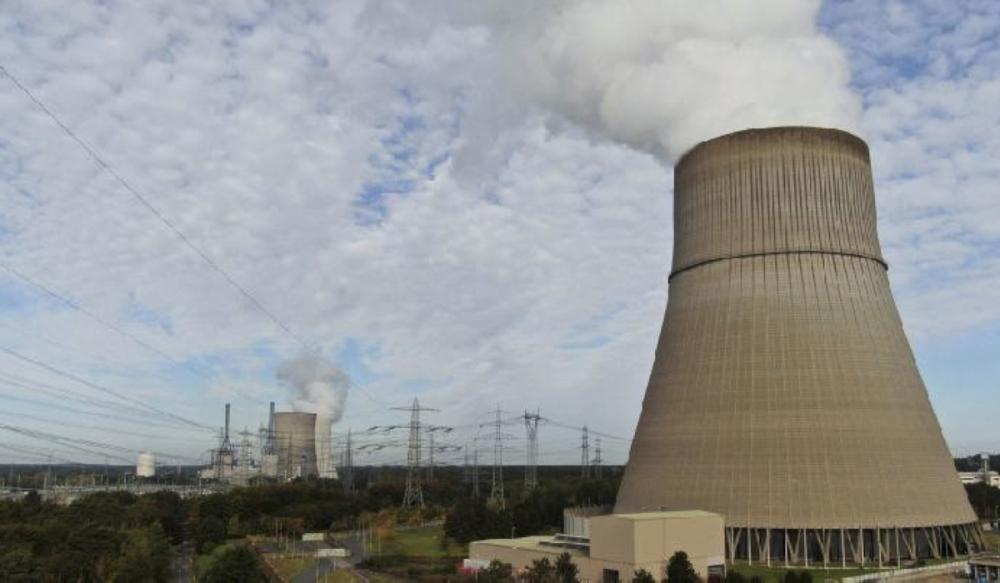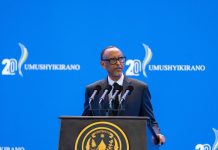Africa-Press – Rwanda. University of Rwanda (UR) is set to introduce a bachelor’s degree in nuclear science and technology, as part of pushing the country’s agenda towards harnessing nuclear energy for development.
The studies, which will be based at UR’s School of Science and Technology in Kigali, are meant to culminate into the supply of the human capital needed to advance the nuclear sector on which the country counts for multiplying its electricity supply ten-fold by the mid 2030s to spur industrial growth and services.
Developed in collaboration with both internal and external partners, the programme is already at an advanced stage as it has already passed through all the validation at university level and is currently in the hands of the Higher Education Council (HEC) for accreditation.
Here is a couple of things you may need to know about UR’s programme and how it will be carried out.
1. What will the graduates be able to do? What skills will they have?
According to Professor Ignace Gatare, the Principal of the School of Science and Technology, the programme, particularly in its advanced final two years, will equip students not only with a broad foundation in general science but also with specialised knowledge in nuclear technology.
Graduates will be equipped with an understanding of how nuclear technology works such as its application in power generation as well as how to use such energy in a safe way.
“Nuclear science has a significant safety component,” he explained.
He noted that when students complete the programme, they will have a foundation to pursue careers in various areas, with further training.
For example, he noted that some may choose to train and specialise in nuclear medicine, and some may go into the energy part where they can work in nuclear power plants, and so on.
Rwanda has a plan of establishing a nuclear research center, and such graduates can be among the people who can work as technicians in the project.
2. How many students can the programme accommodate?
According to UR’s School of Science and Technology, generally for such programmes of engineering and science, the class size is often made up of 25 students per cohort.
This means that each year, the programme can take in up to 25 students, and since it is a four year programme, the university expects that the country will have the first locally trained nuclear scientists, four years after the programme has been launched.
3. Do we have enough lecturers who can teach nuclear technology?
Professor Gatare said that UR currently has lecturers for the first and second levels of the programme, which focus on general sciences such as physics and other engineering disciplines.
However, as explained, a good plan is in place to bring in more specialised lecturers as the programme progresses into its later stages, which focus specifically on nuclear energy.
The university also has lecturers who are specialised in some fields that are closely related to nuclear science and technology.
“We are providing capacity-building opportunities to enhance their knowledge,” he explained.
He also noted that there are Rwandans currently pursuing studies abroad who will be a valuable resource for the programme once they complete their training.
Some are expected to finish their master’s degrees soon, while some are pursuing PhDs and could contribute at more advanced levels of instruction.
4. Which partners are partnering with UR to develop the programme?
Rwanda is a member of the International Atomic Energy Agency and Gatare said that the institution has supported the programme by supplying basic equipment in addition to providing short training courses for UR’s staff.
In addition, Russia is supporting the programme too. Gatare noted that through the International Atomic Energy Agency, Rwanda can also connect with various countries which are willing to support UR for training its staff.
Among the local partners that UR is working with is Rwanda Atomic Energy Board, which Gatare says is a very important institution as Rwanda’s focus on the nuclear sector is growing.
5. Such programmes are not so common in the region
Many African countries have the same ambition like Rwanda to harness atomic energy, but so far, such programmes are not very common in such countries.
As such, UR officials think the programme has potential for attracting foreign students, in case the programme becomes successful.
Source: The New Times
For More News And Analysis About Rwanda Follow Africa-Press






